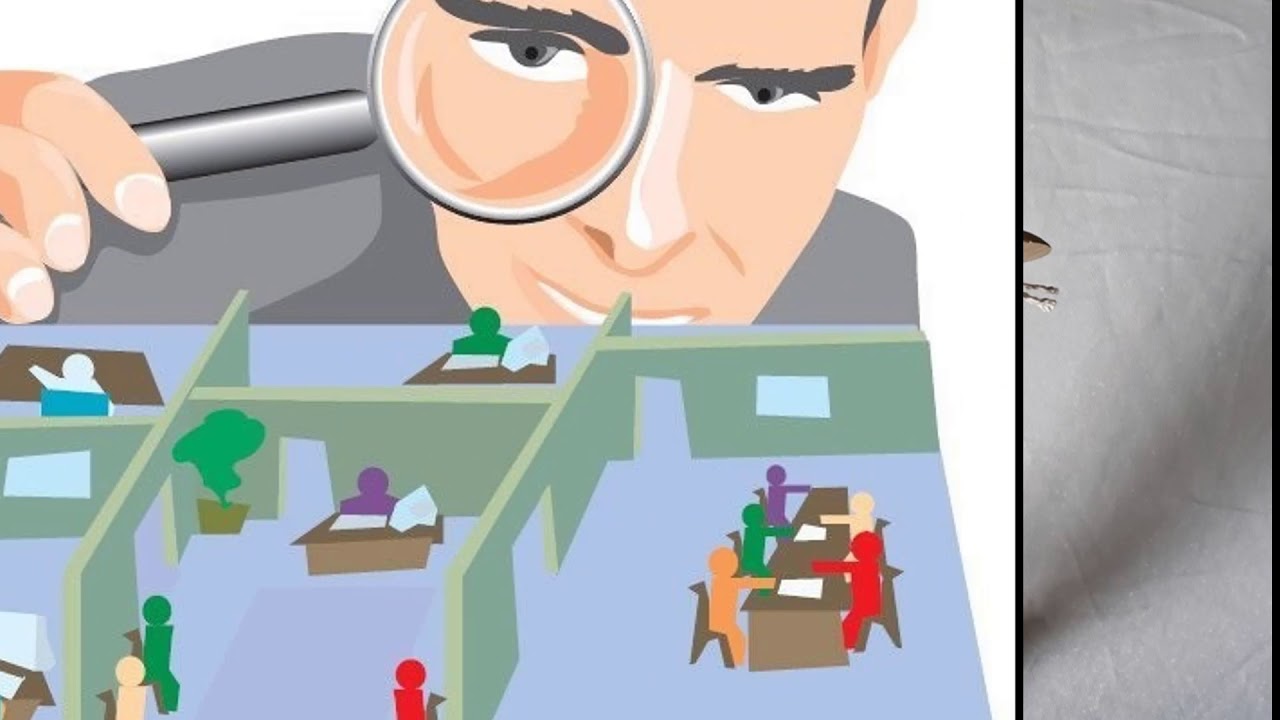Have you ever met someone with that ability to know exactly what other people need? Or can he get to the heart of a problem or challenge by asking just one question? Do you know someone who can predict a problem with just one look at something in particular? All of these abilities come from one valuable skill: the power of observation. What is this skill? And what can it do for you when you have it? This is what we will answer in our article today.
What is the Critical observation skill?
The Critical observation is that ability to notice subtle and hidden details that allow its owner to manage situations with greater caution and therefore wisely and carefully. Critical observation is sometimes confused with critical thinking, but the two terms are different from each other. Critical thinking involves the skills that allow an individual to analyze situations and information around him in order to reach a specific conclusion. While the power of observation includes the process of reading specific people, situations, or processes to extract specific information from them. Where people with strong observation are often able to see details that others overlook.
Observational skills and their importance
The power of observation is one of the most important soft skills that employers encourage their employees to possess due to its positive impact on productivity and performance. Here are some of the pros of having this skill in the work environment:
1- The ability to decide what to do or not to do
Having observational skills contributes to making the individual more attentive to what surrounds him rather than focusing on the task in his hands only, which makes him more able to make sound decisions and determine what he should do and what should be avoided based on the surrounding circumstances.
2- Enhancing the learning process
Observation skills contribute to reaching the stage of enhanced education. In other words, the learning process becomes more efficient, given that the person who possesses strong observational skills and who pays attention to the smallest details will be more able to understand the skills and information that reach him and thus reap better results in the learning process.
3- Get out of the unconscious routine
Many people go about their daily activities unconsciously, since they have become something purely routine. Although this matter is good at the level of positive habits, it is fatal in the process of learning and work, as it prevents the individual from developing and improving his skills, so the power of observation and attention to details are among the most important skills that help a person get out of the unconscious routine and start doing things. consciously and attentively, thus achieving continuous development.
4- Focusing on others rather than thinking about oneself
When an individual is observant, he is more likely to focus on others rather than on himself, which develops his listening and communication skills, so he becomes more able to know what others need and thus provide the appropriate services for them. Whether it is volunteer assistance or part of job duties in the workplace.
The power of observation in everyday life
It may sometimes be difficult to identify the skills of the power of observation in daily life, and its impact on achieving career development at the level of people and companies. But let’s look at the following example to understand how important this skill is:
Let’s say that an employee in a company is having a difficult time handing over the tasks required of him in a timely manner, but he is nonetheless distinguished by providing high quality in his work. In this case, the traditional manager, who may lack the power of observation, will try to motivate this employee through a reward system or threaten him with deductions or any other type of punishment to get him to deliver the work in a timely manner. In the event that this employee does not comply, the manager may be forced to dismiss him despite the quality of his performance.
But, let’s imagine the situation again, with a manager who has the power of sharp observation. This manager may notice that the employee is having trouble meeting deadlines that fall on the third week of each month. By asking some careful questions, the manager might discover that this employee is separated from his wife, and takes care of his child for one week each month (which is the third week of the month). By reaching this conclusion, the manager will deal with the matter more efficiently, making sure that this employee is given tasks earlier than usual, or giving him the option to work from home some days. Instead of resorting to threats and pressure, which may lead to the loss of a highly qualified and skilled person. Remember that this manager did not possess this skill instinctively, but rather acquired it over time through continuous training and training.
How do I develop my observational skills?
After getting acquainted with the strong observational skills and attention to detail, and seeing their advantages and their impact on achieving success, then you must start working on developing and strengthening them. Here are some simple steps that help you do that:
1- Meditation exercises
Make sure to practice meditation exercises regularly. Sit down every morning in a comfortable position, close your eyes and focus on your breathing. Stay like this for five minutes only. When you do this exercise for the first time, you will notice a huge amount of ideas rushing through your head, do not worry about them, and let them flow in front of you, but, as you repeat this exercise on a daily basis, you will notice that the number of ideas is declining, and after some time you will reach the stage of mental emptiness without any disturbing thoughts. Reaching this stage will give you a greater ability to focus and make the mental processes that take place in your mind faster, which in turn leads to the development of your ability to observe and pay attention to details.
2- Sit in a public place and write down your notes.
Set aside a few minutes during the day to sit in a public park, library or shopping center and look at the people around you. Pay attention to what they wear, how they walk and how they interact with others.
Write down these details and other scenes surrounding you: construction operations on the opposite street, crowded cars, shops, and so on. Write all these things down and describe how you feel about them. You will find that your ability to notice has developed over time.
3- Eat your food consciously
Instead of eating your lunch at your desk while you work, make sure you have at least one meal a day, away from any distractions, even talking. Eat your food alone, slowly and slowly, and notice its smell, taste and how you feel when you chew it. This exercise helps you focus more on things that are taken for granted that others do not usually give importance to, and increases your ability to notice hidden details.

4- Make good use of leisure time
It’s nice to let your mind wander while listening to your favorite song or watching a movie. But sometimes it’s fun to use this leisure time to test your observational skills. Think about the reasoning behind the song’s lyrics, or the motive for portraying a scene in this particular way. Notice the impact of this exercise on your ability to pay attention to details and to distinguish other people’s feelings and reactions that most people may not notice.
5- Focus on the different patterns around you
Observation is a wonderful thing, and the more you practice it, the stronger it gets. But it gets better the more you focus on the patterns around you. Random notes are good, but they won’t help you much on the intellectual or creative level, unlike noticing patterns that allow you to know how things work around you and thus predict what’s to come, or about hidden things that others may not know.
For example, you can, for example, observe the behavior of a specific person in the long term, and then detect a specific pattern in his body language, such as someone scratching his nose as a sign of stress, or making a movement with his hand when he gets angry. Thus, you will find yourself able to predict what this person will do or say in different situations. Always try to find and define these patterns around you, and monitor your progress in this field and its impact on identifying and understanding the needs of others.
6- Challenge yourself to notice new things around you
It may be easy to make the decision to notice the new things around us, but it is very difficult to apply this matter on the ground. You can’t suddenly say, “I’m going to see the world with new eyes,” and then expect it to really happen. You must challenge yourself to do this. Here are some simple ideas to help you achieve this goal:
Choose something and focus on searching for it: It could be anything you can think of: broken windows, security cameras, murals by a specific artist…etc. When you find this object, take a picture of it, or write down where you found it, and then try to think of why it was in that particular place.
Catch up on the local news or read the local newspaper: it’s a great way to get to know your city and neighborhood, and it will make you more attentive to the details around you. It also introduces you to a lot of new things that happen around you every day.
Walk with an expert in a specific field: There is no doubt that you have a friend or relative who has hobbies or works in a different job than you. Do not hesitate to go on a tour with him and see the world from his perspective, you will undoubtedly gain a new and different view of the surroundings around you.
Take an audio tour: This term may sound very strange and silly, but it will undoubtedly stimulate your observational skills. All you have to do is focus on the sounds around you as you walk around town or on your way to work. Try to identify different sounds and distinguish their types and source.
365 Day Challenge: The main idea of this challenge is to take a picture of a place or something for a whole year. There are some applications on the Internet that offer you a complete calendar for this challenge, where an alert is sent every day to take a picture of something or somewhere. Thus, this challenge motivates you to search and look at places that you did not pay any attention to before, which contributes to enhancing your strength of observation and your attention to details.
Which of these ideas caught your attention and made you excited to try them out? What other things do you think might help you develop your observational skills? Share it with us through the comments.
Read also: The best jobs for shy and introverted personalities?



